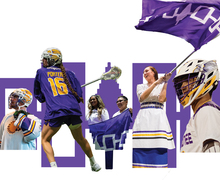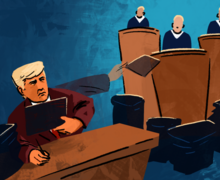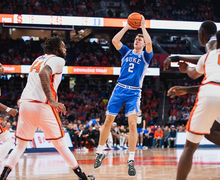Ask the Experts: Supreme Court permits Texas voter ID law
The Supreme Court issued a court order on Saturday that allowed a Texas law requiring voters to be able to present a photo ID such as driver’s license, gun license, a military ID or a passport to vote in person. This law and others like it, such as one in Wisconsin, have been criticized for disenfranchising members of certain demographics.
The Daily Orange spoke with political science professors Thomas Keck, Kristi Andersen and Shana Gadarian about the Court’s decision.
The Daily Orange: What does the Supreme Court’s decision mean?
Keck: They did not hear arguments in the case, they did not issue a decision in the case, so that’s one important thing to clarify. There’s been several of these cases in the past few weeks and the Supreme Court has been issuing these preliminary holdings where what the justices seem to be saying is that they don’t want a change an election law in the weeks leading up to an election, because poll workers won’t be ready and so forth.
Andersen: The Supreme Court is not really saying that the law itself is OK. It’s saying that the law needs to stay in place through the election.
The D.O.: Do you think that the Court placing a hold on the voter photo ID case is a sign that it is going to rule in favor of keeping it?
Andersen.: They’re going to have to deal with a very compelling argument. The opinion by the district court judge Gonzalez Ramos is very convincing. There are also a lot of articles on Justice (Ruth Bader) Ginsburg’s dissent that basically explain why she believes that this voter restriction law should not have been allowed to stand.
Keck: Especially since the 2010 election, which saw a big Republican wave recapture Congress and many state legislatures, lots of states have enacted restrictions on voting rights. The Republicans say it’s to prevent voter fraud, the Democrats say it’s for voter suppression. If you look at it, these laws are blatantly partisan, whether you think they’re good or bad. Every Republican votes for them, every Democrat votes against them; it’s quite extreme. The troubling thing with the courts getting involved is that you see Republican justices always upholding the laws and Democratic justices striking them down, which is not exactly how our court system is supposed to work.
The D.O.: Civil rights advocates and liberals have criticized these types of laws as restricting certain groups’ ability to vote, such as ethnic minorities. How valid is this criticism?
Andersen: The Republicans initially began to pass these laws on the grounds that they would prevent voter fraud, but I think it’s been proven to most people’s satisfaction that in-person voter fraud exists at such a small level that you don’t introduce legislation just to prevent it. There have actually been instances where Republicans in various places have said things like “This is going to help us.” So I think the intention is there.
Gadarian: The effects tend to be concentrated on groups that have lower income, African-Americans, Latinos and so on, that tend to vote on the whole Democratic. Another concern is that these laws are trying to fix a problem that doesn’t really exist.
The D.O.: So how might that affect voter turnout?
Andersen: In the 2012 election, when some of these laws were on the books, there were suggestions that they had the opposite effect of what they were intended to do, because the people the laws targeted, such as minorities, turned out at even higher rates because they were angry. It’s hard to say what the effect will be.
Gadarian: I don’t think that these laws are going to disenfranchise people by making it too hard to vote, but they will add confusion and they give this power to the election folks to decide whether people are allowed to vote, and that concerns me, because party power becomes skewed.
Published on October 23, 2014 at 12:01 am
Contact Thomas: tjbeckle@syr.edu





